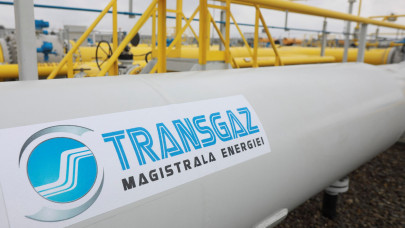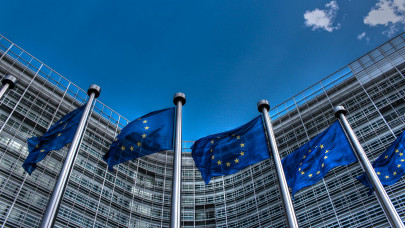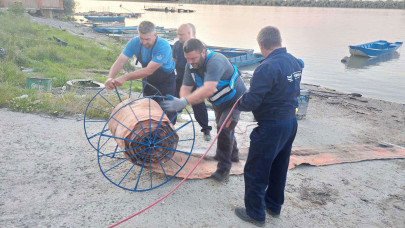European funds such as the Modernization Fund, the Cohesion Funds, and the Recovery and Resilience Fund are intended to help countries improve their economic situation by upgrading their energy infrastructure, among other things. However, the allocations planned in Romania and Poland for the 2021-2027 financial period, analyzed by Bankwatch, risk increasing the countries' dependence on gas and undermining the energy transition.
In Romania, the authorities have allocated at least €1.7 billion of EU funds for projects based on fossil gas, such as the conversion of the power plant in Ișalnița or the increase in storage capacity at the gas warehouse in Bilciurești.
"During the period August 2022-January 2023, Romania managed to reduce fossil gas consumption by approximately 25%. This was an important achievement, but the government's plans could reverse this trend. The investments we analyzed led to a fourfold increase in gas infrastructure financing from EU funds, compared to the allocations from the previous period of the EU budget. This would be a risky decision that will greatly increase gas consumption. The government must review these plans and abandon projects that do not contribute to achieving climate neutrality," said Raluca Petcu, coordinator of the fossil gas campaign at Bankwatch Romania.
And in Poland, gas projects such as the Gdansk import terminal or a subsidy scheme for the installation of own gas plants could receive more than €2 billion. The last year and a half has shown us that fossil gas is not a safe or affordable energy source.
But governments still have the opportunity to use European funds to expand gas infrastructure, because European funding allows it. As long as EU fund regulations make gas projects eligible, they will perpetuate Europe's vulnerability to future fossil fuel crises, whether due to reduced supply or rising prices.
"Any project or scheme that adds new gas consumption goes against EU policy attempts to drastically reduce gas consumption before 2030," the report said.
European public funds play an important role in achieving the continent's energy transition. But they should not be used for fossil fuels. Europe now needs a massive increase in investment in sustainable renewable energy, electricity transmission networks, and energy demand reduction measures that can help solve both the climate and energy crises. For this to be possible, European decision-makers must urgently update the legislative framework that regulates European funds to exclude investments in gas projects, the report states.
"Governments trying to use EU public money for fossil gas projects that would operate long after 2050 are doing so at the expense of their own citizens. Any fossil gas project paid for with European funds implicitly diminishes the much-needed investments in energy efficiency and renewable sources in Poland, Romania, and throughout Europe. The European Commission must urgently revise the funding regulations and stop the use of European money for new gas projects," added Gligor Radečić, Fossil Gas Campaign Coordinator in CEE Bankwatch Network.
Bankwatch Romania is an association established in July 2012, whose aim is to prevent the negative environmental and social impact of public and private projects and to promote sustainable alternatives and public participation in decision-making.














